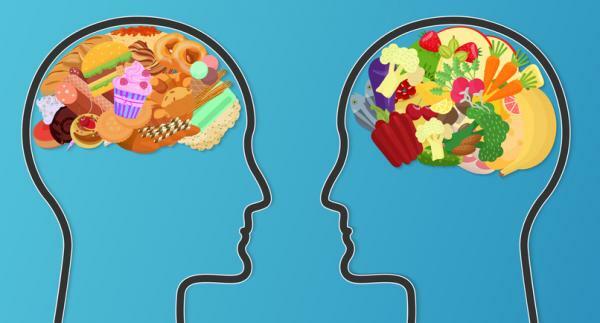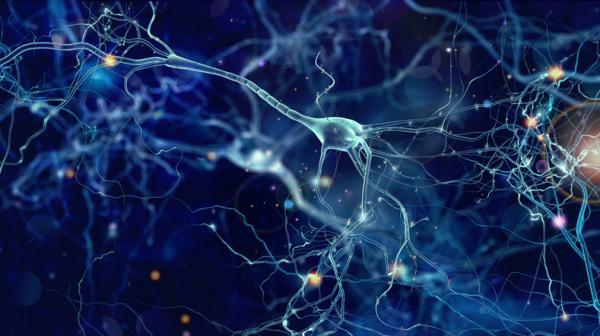
The brain is a vital organ for the human being. The brain allows us to make decisions, understand language, learn, walk, breathe, etc. It is an organ of enormous complexity that, although it has been extensively studied, is still very unknown. What we do know is that the brain needs a great deal of energy in order to carry out its function.
Sugar is the main fuel for the brain along with oxygen. You have probably seen people who are faced with tasks that require a lot of mental effort, such as exams, consume foods rich in sugar to improve their performance. But what happens then to the sugar and the brain? How much sugar can our brain consume? Is it healthy or can sugar have harmful effects on the brain?
Continue reading this Psychology-Online article in which we tell you how sugar affects the brain and we answer all the above questions.
Index
- How sugar works in the brain
- How much sugar does the brain consume
- Harmful Effects of Sugar on the Brain
How sugar works in the brain.
Blood sugar or glucose is the main source of energy for the mammalian brain. Both glucose and oxygen are the two main components in the production of adenosine triphosphate (ATP), used in obtaining cellular energy.
Glucose reaches the brain through the bloodstream and is distributed throughout the brain through the arteries and veins that supply it. It is worth noting the ease with which glucose can reach the brain, since the blood-brain barrier, a brain safety system, is perfectly permeable to glucose.
While is true that glucose feeds neurons, which are the most numerous cells in our brain, there are also other types of cells that support neurons, such as astrocytes. Regarding glucose intake, as indicated in the study by Jaramillo-Magaña, J.J. (2013)[1], astrocytes function as a glucose reserve that is used at times of high metabolic requirement.
So how does sugar affect the brain? Glucose metabolism provides the energy for neural communication processes can be carried out, both in the biosynthesis of neurotransmitters and for the generation of action potentials and post-synaptic potentials.
If glucose is the main source of brain energy, then we understand that it is important so that all brain functions can be carried out and, more specifically, so that cognitive processes, as the attention wave memory, work properly.
How much sugar the brain consumes.
Neurons are the main and most numerous of the cells that make up the brain. It is precisely these cells that demand the most energy, which requires that they are continuously supplied with glucose through the bloodstream.
Although it is true that the brain is, as we have already indicated, a very complex and vitally important organ. Mergenthaler, P. et al. (2013)[2] indicate that it represents only 2% of body weight. Let's not be fooled by its size. Despite this, the brain is the human organ that consumes the most glucose.
Approximately consume about 5.6 mg of glucose per 100 grams of brain tissue human per minute. In total, the brain consumes approximately 20% of the energy derived from glucose (Erbsloh, F. et al., 1958)[3]. Discover in more detail how the human brain works.
Harmful effects of sugar on the brain.
How does sugar affect the brain? As we have been saying, sugar provides a large amount of energy to the brain that can translate into improved performance. Nevertheless, blood glucose levels must be kept in a certain range so as not to be harmful, since, both by excess and by default, they can be harmful to the brain. Next, we will look at the harmful effects of sugar on the brain.
Hypoglycemia
The hypoglycemia It consists of a deficit of glucose in the blood. How do low sugar levels affect the brain? If hypoglycemia occurs the brain will not get enough energy in order to continue to function, which can lead to a hypoglycemic coma in which a flattening or cessation of electrical brain activity occurs.
A stroke also causes certain areas of the brain to stop receiving oxygen and / or glucose, which can lead to neuronal death. In any case, when the brain does not receive enough glucose brain damage may appear that involve cognitive, motor, sensory, etc.
Hyperglycemia and excess sugar intake
At the other extreme we find brain involvement when glucose levels are abnormally high, when hyperglycemia occurs, which has been linked to a worse prognosis in accidents cerebrovascular
What can happen if you eat a lot of sugar? There are studies such as that of Beilharz, J.E., Maniam, J. and Morris, M.J. (2015)[4]suggesting that diets rich in refined sugars may cause damage to cognitive function, and more specifically, about memory. Find out which are the main ones memory psychopathologies.
Metabolic disturbances
What harm does sugar do? Alterations in glucose metabolism can cause diseases in general and brain-related diseases in particular. An example of this is diabetes. How does diabetes affect the brain? Produces impairments in cognitive function and a global brain involvement compared to other neurological disorders such as Alzheimer disease (Muñoz, A., Degen, C., Schröder, J. and Toro E., P., 2016)[5].
Sugar as an addiction
How else does sugar affect the brain? Your intake has effects on the brain's reward system, a system in charge of repeating the behavior and even becoming addictive. This reward system is the same that appears involved in addictive behaviors such as those related to drugs of abuse.
This article is merely informative, in Psychology-Online we do not have the power to make a diagnosis or recommend a treatment. We invite you to go to a psychologist to treat your particular case.
If you want to read more articles similar to How sugar affects the brain, we recommend that you enter our category of Neuropsychology.
References
- Jaramillo-Magaña, J.J. (2013) Brain metabolism. Anesthesiology in Neurosurgery, 36 (S1): S183-S185
- Mergenthaler, P., Lindauer, U., Dienel, G.A. and Meisel, A. (2013) Sugar for the brain: the role of glucose in physiological and pathological brain function. Trends in Neurosciences, 36 (10) 587-597.
- Erbsloh, F., Bernsmeier, A. and Hillesheim, H. (1958) The glucose consumption of the brain and its dependence on the liver. Arch Psychiatr Nervenkr Z Gesamte Neurol Psychiatr, 196(6): 611-626. doi: 10.1007 / BF00344388. PMID: 13534602.
- Beilharz, J.E., Maniam, J. and Morris, M.J. (2015). Diet-induced cognitive deficits: the role of fat and sugar, potential mechanisms and nutritional interventions. Nutrients, 7: 6719-6738. doi: 10.3390 / nu7085307
- Muñoz, A., Degen, C., Schröder, J. and Toro E., P. (2016) Diabetes mellitus and its association with cognitive impairment and dementia. Las Condes Clinical Medical Journal, 27 (2): 266-270


